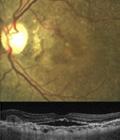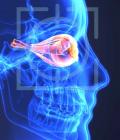Test Your GA GPA! Challenge 1 - Epidemiology

This educational activity will help clinicians identify patients who are at higher risk for geographic atrophy and promote early diagnosis.
Category
- Ophthalmology
Format
- Game
Credits
- 0.25 AMA PRA Category 1 Credit™
- 0.25 Participation
Test Your GA GPA! Challenge 2 - Imaging

This educational activity will teach clinicians to identify hallmark lesions of geographic atrophy on imaging and discern which lesions indicate a risk for rapid progression of disease.
Category
- Ophthalmology
Format
- Game
Credits
- 0.25 AMA PRA Category 1 Credit™
- 0.25 Participation
Test Your GA GPA! Challenge 3 - Current and Emerging Treatments

This educational activity will review the pathophysiology of geographic atrophy and the clinical data for currently available geographic atrophy treatments.
Category
- Ophthalmology
Format
- Game
Credits
- 0.25 AMA PRA Category 1 Credit™
- 0.25 Participation
Test Your GA GPA! Challenge 4 - Case Studies/Treatment Plans

This educational activity will use a case-based approach to help clinicians identify patients who may be candidates for treatment.
Category
- Ophthalmology
Format
- Game
Credits
- 0.25 AMA PRA Category 1 Credit™
- 0.25 Participation
Revealing Rett: Disease-Based Treatments to Improve Outcomes (CME/CE Webcast)

In this educational activity, learners will become proficient at recognizing the subtle signs and symptoms of Rett syndrome during the early stages of the disorder, along with the features that should prompt a referral in patients exhibiting potential signs of Rett syndrome.
Category
- Pediatrics
Format
- Webcast
Credits
- 1.00 AMA PRA Category 1 Credit™
- 1.00 ANCC
- 1.00 Participation
Advances in Treatment for Retinal Disease: What Optometrists Need to Know (COPE-Approved CE Webcast)

This is a 4-part series of 15-minute discussions that will help optometrists who care for patients with neovascular age-related macular degeneration and diabetic macular edema better understand how to address the burden patients face, current treatment options, the need for longer-acting treatments, and best practices.
Category
- Optometry
Format
- Webcast
Credits
- 1.00 COPE
Parkinsons Disease Psychosis: Managing Complex Patients With Behavioral Manifestations (CE Webcast)

This educational activity will help advanced practice nurses become more adept at identifying Parkinsons disease psychosis and developing person-centered nonpharmacologic and pharmacologic management plans for older adults with Parkinsons disease psychosis who exhibit behavioral disturbances.
Category
- Psychiatry
Format
- Webcast
Credits
- 1.00 ANCC
Identifying a Hidden Threat: The Optometrist's Role in Timely Diagnosis and Referral of Neuromyelitis Optica Spectrum Disorder (Archived CE Webcast)

In this interprofessional webcast, experts in optometric and neurologic assessment and treatment of neuromyelitis spectrum disorder (NMOSD) discuss best practices in diagnosis and referral of patients with possible NMOSD as well as clinical data supporting 3 newly approved long-term suppressive treatments specifically targeting immunologic pathways altered by NMOSD autoantibodies.
Category
- Optometry
Format
- Archive
- Webcast
Credits
Targeting the Suprachoroidal Space in Treating Noninfectious Uveitic Macular Edema (Archived Online CME Monograph)

In this educational activity, experts will provide information on uveitic macular edema that encompasses the epidemiology, pathophysiology, impact on vision loss, diagnostic criteria, relevant injection techniques, and efficacy and safety of current and emerging treatments.
Category
- Ophthalmology
Format
- Archive
- Monograph
Credits
Tearing Up: New and Emerging Therapy With Tear Stimulation for Dry Eye Disease (Archived Online CME Monograph)

In this educational activity, experts in dry eye disease (DED) present a review of natural tear production and its importance for ocular surface health, describe new and emerging tear stimulation treatments for DED, including data from pivotal trials, and share insights on therapeutic decision making based on real-world situations of patients with DED.
Category
- Ophthalmology
Format
- Archive
- Monograph
Credits

 Facebook
Facebook Twitter
Twitter LinkedIn
LinkedIn Forward
Forward